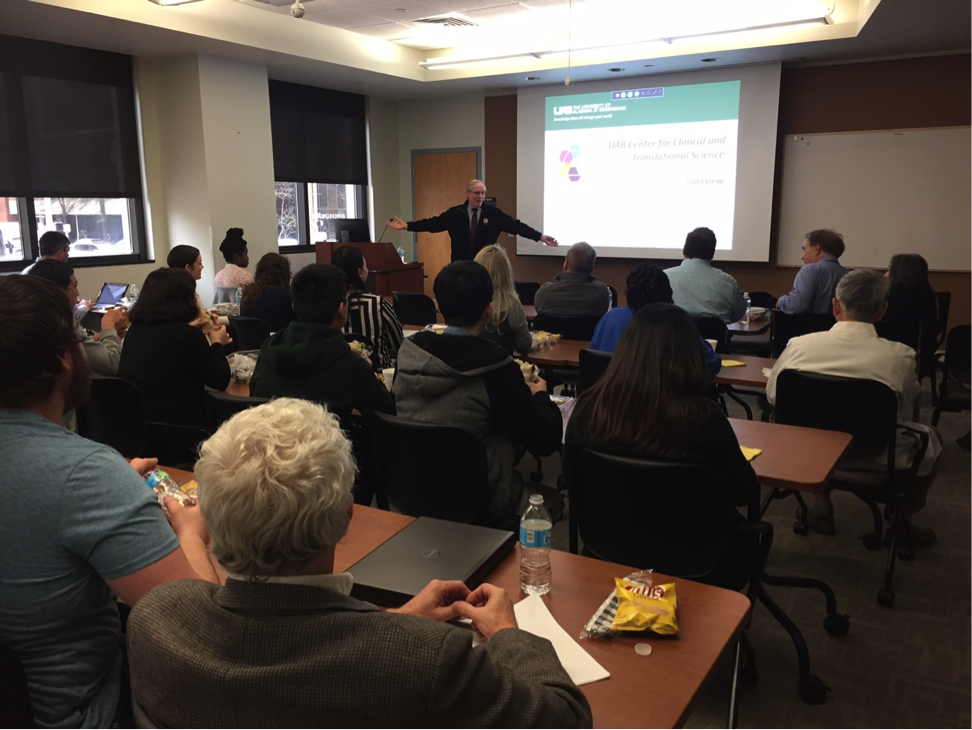Dr. Robert P. Kimberly, UAB Senior Associate Dean for Clinical and Translational Science, highlighted the many ways CCTS helps speed the pace of scientific discoveries and their progress along the translational pipeline to a standing-room only crowd at a Wonderful World of Technology event last week. The event was cohosted by UAB’s Rheumatology Diseases Core Center and the Comprehensive Arthritis, Musculoskeletal, Bone and Autoimmunity Center.

Kimberly started off describing the many venues to connect face-to-face with CCTS domain experts, such as our recent Open House, monthly Forums, and regular drop-in clinics. “You can talk with CCTS folks with special expertise in key research areas including informatics, biostatistics, study design, multisite trials, and meeting the latest federal requirements, such as the NIH Rigor, Reproducibility, and Transparency (R2T) rules” he said.
With a nod at the meeting’s theme, he then shared some of the more technically oriented trainings CCTS offers, such as Accessing Clinical Data for Research with i2b2, which has been in high demand for several months now. He also played a new CCTS video, “Don’t Be This PI!” about the more stringent ClinicalTrials.gov requirements for registering and reporting clinical trials. “We can’t report for you, but our regulatory team and study design methodologists can help you avoid the opportunity to pay $11,000 in fines,” he said, only half jokingly.
“Our CCTS Partner Network offers deep expertise in drug discovery and device development,” he said before playing a second video to highlight how CCTS enables “creative collisions” between disparate fields such as engineering and oncology. This video features researchers from the University of South Alabama explaining how CCTS supported their vision to apply engineering principles to solve a biological problem, creating a device that uses spectral light imaging to enable detection of precancerous colon lesions otherwise invisible to the human eye. “We can help refine ideas, get you to the stage where you can spin off to an SBIR grant or seek licensing,” Kimberly added.
Kimberly concluded with an invitation, saying, “Our mission is to move knowledge along the translational pipeline to practical application in improving human health. To that end, we will help you wherever you are in the translational continuum, from T0 to T4. Translation is a team sport! Join us online, subscribe to our weekly Digest, and attend an upcoming event at PCAMS.”